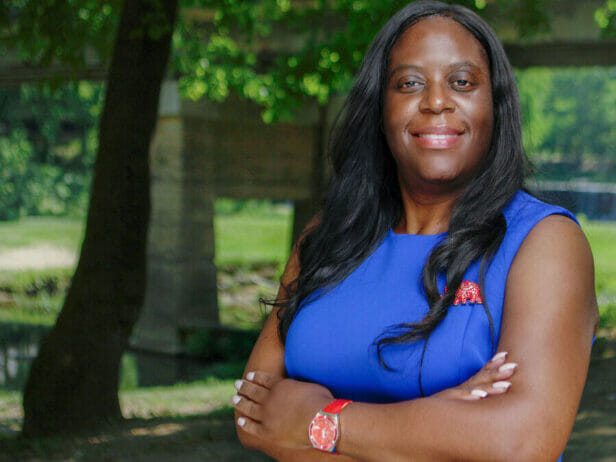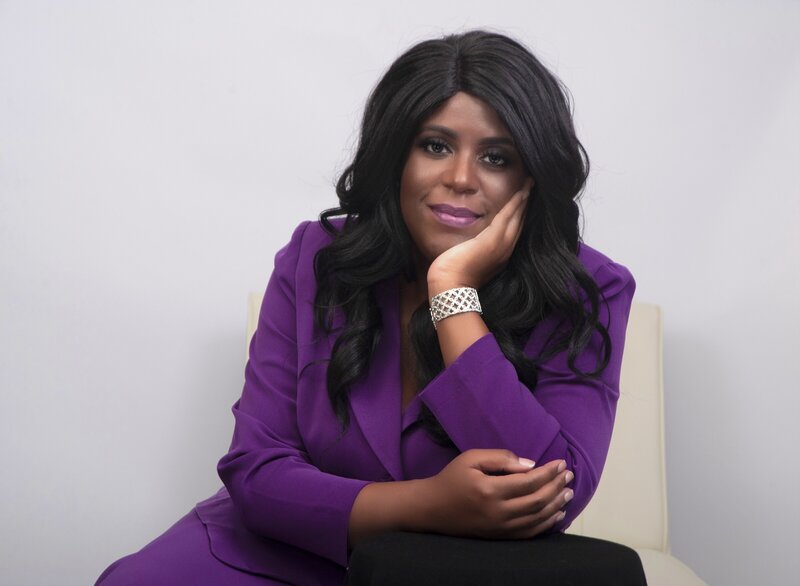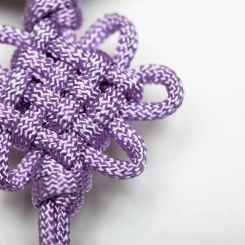October 14, 2024
As an executive, you’re used to making decisions. Big ones, small ones, urgent ones—your days are often defined by the constant barrage of choices. But have you ever noticed that, by the end of the day, even deciding what to have for dinner feels impossible? That’s decision fatigue creeping in.
Let me tell you a quick story. One of my clients, a high-achieving executive in her 40s, came to me feeling utterly overwhelmed. She shared how she started her mornings full of energy, making confident choices for her team and organization. But by the afternoon, even simple questions, like approving a budget or finalizing meeting agendas, felt like climbing a mountain. By the time she got home, she felt paralyzed—unable to decide what to eat, what to wear, or even what TV show to watch.
She was exhausted, and it wasn’t because of the work itself, but because of the mental strain of making decision after decision.
If this sounds familiar, you’re not alone. Executive women often face unique challenges that make decision fatigue all too real. You juggle leadership, family, personal ambitions, and sometimes, the invisible pressures of bias or isolation in the workplace. Each decision, no matter how small, adds up, draining your mental energy throughout the day.
In this blog, we’ll dive deep into what decision fatigue is, why it affects executive women so profoundly, and—most importantly—how you can overcome it using practical mental hacks to regain control and lead with confidence.


What is Decision Fatigue?
Decision fatigue is the deteriorating quality of decisions after a long session of decision-making. Think of your mental energy as a battery. Each decision you make, whether large or small, drains a little bit of that energy. As the day goes on and your mental battery gets depleted, your ability to make clear, thoughtful decisions weakens.
The Science Behind Decision Fatigue
The American Medical Association (AMA) says that decision-making requires significant mental energy. Neuroscientists explain that every choice we make, no matter how trivial, engages the brain’s prefrontal cortex, the part responsible for complex cognitive behavior. As this area is repeatedly engaged, it becomes fatigued, making us more prone to poor decision-making later in the day. This fatigue can manifest as either impulsive decisions (grabbing a candy bar instead of a healthy snack) or avoiding decisions altogether (deferring important work to the next day).
What Are the Signs of Decision Fatigue?
- Increased Procrastination: When faced with too many choices, the brain can shut down, making it harder to take action. For example, you might endlessly scroll through your inbox, unable to decide which email to respond to first.
- Impulsive Choices: After a day full of decision-making, it’s not uncommon to make a snap decision just to get it over with. For instance, you might agree to a meeting you’re unsure about just to clear your schedule, even though it doesn’t align with your priorities.
- Difficulty Prioritizing Tasks: As decision fatigue sets in, it becomes harder to determine what’s important. Suddenly, everything feels equally urgent or irrelevant, leaving you feeling overwhelmed and stuck. For example, you might spend an hour debating between two insignificant options for a presentation, while putting off a more crucial decision about team restructuring.
- Feeling Overwhelmed by Routine Decisions: Decisions that should be simple—like what to wear or eat—become difficult, causing frustration. How many times after a long day of managing your team and finalizing projects, have you stood in front of the refrigerator? Utterly incapable of deciding what to cook for dinner?
Every Decision Counts: Small Examples Add Up
Even the small, routine decisions can contribute to decision fatigue. Think about the number of choices you make in just a few hours of the day:
- What to wear: Should you dress formal or business casual for that important presentation?
- How to respond to emails: Which emails require immediate attention and which can wait?
- Managing your team: Should you take a hands-on approach to a project or delegate it entirely?
- Personal matters: Do you stay late at the office or leave on time to make it to your kid’s school event?
Each of these decisions, no matter how minor they seem, chips away at your mental energy. Over time, the accumulation of these choices leads to decision fatigue, impacting your ability to make sound decisions when they matter most.
By understanding what decision fatigue is and recognizing its symptoms, you can begin to take control of your mental energy before it depletes. The good news is there are actionable ways to manage it, and in the next sections, we’ll explore those mental hacks that can make all the difference.
Why Executive Women are More Prone to Decision Fatigue
Executive women often face unique challenges that make them more susceptible to decision fatigue than their male counterparts or women in other roles. The demands of leadership, combined with societal pressures and personal responsibilities, create a perfect storm of decisions that can drain mental energy faster than usual. Let’s explore some of the key reasons why executive women are more prone to decision fatigue.
Multiple Roles and Responsibilities
Executive women typically juggle various roles both in and outside of the workplace. At work, they are decision-makers, leaders, and often mentors. At home, they may take on the roles of caregivers, partners, and household managers. The sheer volume of decisions they make daily can be staggering.
Imagine a typical day where you’re making strategic decisions for your company, attending board meetings, and managing your team’s performance. Once you get home, you’re faced with equally important but different decisions—helping your children with homework, planning meals, or organizing family activities. This dual role can quickly lead to decision overload, leaving you mentally drained by the end of the day.
The Pressure of Being a Role Model
As a high-achieving woman in an executive position, there is often an added layer of pressure to perform perfectly. Many executive women feel that they are role models for other women in the organization or industry, particularly in male-dominated fields. This means they not only strive to make the right decisions but also feel a constant need to prove themselves, adding to their mental load.
One of my clients, a C-suite executive in the tech industry, shared how she felt compelled to meticulously plan every decision during presentations. As the only Black woman in her role, she often felt the pressure to set a perfect example for others, knowing that her success or failure could influence perceptions of women like her. This burden of responsibility significantly contributed to her decision fatigue.
Navigating Workplace Microaggressions
Executive women, especially women of color, often have to deal with the added stress of microaggressions and subtle forms of discrimination in the workplace. These moments require not only mental energy to process but also the cognitive load of deciding how to respond, whether to address the situation directly or let it slide, and how to handle the emotional aftermath.
Example: Let’s say you’re in a meeting and a male colleague subtly undermines your authority by questioning your decision in front of the team. You now have to decide whether to call it out, navigate the conversation without escalating tensions, or process the emotions of being disrespected—all while continuing to manage the actual business decisions at hand. This constant balancing act adds another layer of decision-making that can be mentally exhausting.
Emotional Labor
Emotional labor refers to the effort required to manage not just your own emotions but also those of others. For many executive women, especially those in leadership roles, maintaining the emotional well-being of their teams becomes an unspoken responsibility. This emotional labor is often invisible but very real, and it takes a toll on your mental energy.
As a leader, you might spend a significant portion of your day supporting your team members through personal or professional challenges. From helping an employee work through burnout to managing team dynamics, this type of decision-making involves empathy and emotional intelligence, which can contribute to decision fatigue. You may spend your day managing the morale of your team, leaving little mental bandwidth for personal decisions by the time you get home.
Decision Fatigue and Perfectionism
For many executive women, there’s an internal pressure to be perfect in both personal and professional life. This perfectionism can lead to overanalyzing even small decisions, further depleting mental energy. The more you strive for perfection, the more mental energy you expend, which accelerates the onset of decision fatigue.
Example: You might spend hours reviewing and revising a proposal or presentation, seeking to make it flawless, while also agonizing over small personal decisions like planning your child’s birthday party. The constant back-and-forth between work and home decisions leaves little room for mental recovery, making even small choices feel overwhelming.
Executive women face these compounded pressures daily, which is why decision fatigue can hit harder and faster. Recognizing these specific triggers is the first step toward addressing them. In the next section, we’ll explore actionable mental hacks that can help break the cycle of decision fatigue and restore your mental clarity.
Mental Hacks to Combat Decision Fatigue
When decision fatigue starts to set in, it’s easy to feel like you’re stuck in a never-ending loop of poor decisions, stress, and overwhelm. But the good news is that there are simple, practical mental hacks that can help break this cycle. By making small adjustments to how you approach decision-making, you can conserve your mental energy and regain clarity in your leadership role.
1. Prioritize High-Value Decisions
Not all decisions are created equal. Some require more mental energy, while others can be handled quickly or delegated. Start by identifying which decisions are high-value and which are low-priority. Tackle the most important decisions early in the day, when your mental energy is highest.
I once found myself completely drained by mid-afternoon every day. And the fact that I have sleep apnea really doesn’t help! After analyzing my day, I realized that I was spending the first part of my mornings on trivial decisions like sorting through emails or approving minor details on projects. By the time bigger issues came up later in the day, I had no energy left to give. I made a simple switch. I started my day with the high-priority decisions that would move my business forward. As a result, not only did I feel more accomplished, but I also had more mental space to handle the smaller decisions later.
Tip: Create a morning routine where you block out time for your most critical tasks. Schedule meetings that require deep thinking for early in the day and save routine tasks for later.
2. Limit Your Choices
Decision fatigue often comes from having too many options. The more choices you have, the more mental energy you expend trying to weigh the pros and cons of each one. By limiting your choices, you can streamline your decision-making process and save your brainpower for more important matters.
One of my clients, a marketing executive, was always bogged down by small, repetitive decisions like what to wear each morning or what to have for lunch. These decisions drained her energy before she even got to work. To combat this, she created a “capsule wardrobe” with a few interchangeable outfits and started meal-prepping on Sundays. By removing those small, daily choices, she was able to reserve her mental energy for more meaningful decisions at work.
Tip: Automate or simplify as many routine decisions as possible. Whether it’s pre-planning meals, using a to-do list, or setting up automated systems for repetitive tasks, reducing your choices will help prevent decision fatigue.
3. Utilize Decision Frameworks
Decision frameworks provide structure, making the decision-making process more efficient. Whether it’s a pros and cons list, a decision matrix, or a set of guiding principles, frameworks help you evaluate your options quickly and effectively without overthinking.
I had a client who used to struggle with hiring decisions. She would spend hours reviewing candidates, debating over minor differences in their qualifications. To simplify the process, I coached her to create a decision matrix that prioritized the most important traits for the role. Each candidate was evaluated against this framework, allowing her to make faster, more objective decisions.
Tip: Use a consistent decision-making framework for recurring types of decisions, whether it’s hiring, budgeting, or strategic planning. This can help reduce the mental energy spent on analyzing each option.
4. Set Decision Deadlines
Procrastination is often a result of decision fatigue. When we’re overwhelmed by choices, we tend to delay making decisions altogether. One way to combat this is by setting decision deadlines. Giving yourself a time limit forces you to make decisions more efficiently without getting caught in the trap of overanalyzing.
I used to spend days deliberating on big business decisions, constantly second-guessing myself. After realizing how much time and mental energy I was wasting, I started setting deadlines. For example, if I needed to make a strategic decision, I would give myself 48 hours to gather information and commit to a choice. This simple hack not only improved my decision-making speed but also reduced the stress that came with prolonged indecision.
Tip: Apply the “two-minute rule” for low-impact decisions. If it takes less than two minutes to decide, make the call immediately rather than spending valuable time and energy on it.
5. Practice Self-Care to Recharge Mental Energy
One of the most effective ways to combat decision fatigue is to recharge your mental energy through self-care. Taking regular breaks, engaging in mindfulness or meditation, and practicing physical self-care can replenish your cognitive resources and improve decision-making.
A few years ago, I was running on empty. Between managing a growing business, working a full time job, supporting my family, and trying to make big decisions about the direction of my career, I was completely burned out. I was making poor decisions simply because I was mentally exhausted.
That’s when I realized I had been neglecting self-care. I started small: taking a 10-minute walk during lunch, practicing mindfulness each morning, and setting aside time for things I enjoyed. It wasn’t an overnight transformation, but over time, I felt a noticeable shift in my mental clarity and energy. Now, self-care is non-negotiable in my routine. When I take care of myself, I make better decisions—for both my business and my life.
Tip: Build small self-care routines into your day. Even a few minutes of mindfulness, stretching, or fresh air can restore your mental energy and help you make clearer decisions.
These mental hacks offer practical solutions to break free from decision fatigue. By prioritizing decisions, limiting your choices, and implementing self-care, you can regain control of your mental energy and lead with renewed clarity and focus.
Strategies to Build Long-Term Decision-Making Resilience
While mental hacks can provide immediate relief from decision fatigue, building long-term resilience requires a more strategic approach. By incorporating sustainable habits and frameworks into your life, you can prevent decision fatigue from creeping back in and maintain clarity and confidence in your decision-making over time.
1. Build a Strong Support System
One of the most powerful ways to reduce decision fatigue is to surround yourself with a strong support system. Whether it’s through trusted mentors, peers, or a coach, having people to turn to for advice and perspective can ease the burden of decision-making. Instead of feeling like every decision rests solely on your shoulders, you can share the load and benefit from their insights.
One client I had, an executive in the healthcare industry, who felt overwhelmed by the sheer number of decisions she had to make daily. She often felt isolated, thinking that asking for help would make her appear less competent. After we worked together to build a network of trusted colleagues and mentors, she began to rely on their guidance for key decisions. Not only did this alleviate some of the pressure, but it also provided her with diverse perspectives that improved the quality of her choices.
Tip: Regularly connect with mentors or peers in your industry to seek advice on critical decisions. Establishing a monthly check-in or accountability call with a coach can also help you process complex choices more efficiently. If you find that you’re so isolated in your industry, hiring an executive coach is just as effective.
2. Develop a Routine for Repeated Decisions
Routine can be your best friend when it comes to minimizing decision fatigue. For repeated decisions—such as what to wear, when to schedule meetings, or how to structure your day—developing consistent routines can drastically reduce the number of choices you have to make. Once a routine is in place, you no longer need to spend mental energy on these recurring decisions.
Another of my clients, working in a tech startup, struggled with managing her time efficiently. She would often spend valuable energy deciding when to hold meetings or how to structure her day, which led to decision fatigue by the afternoon. Together, we created a structured routine where she reserved mornings for deep work, scheduled meetings only in the afternoons, and implemented a “decision-free” evening routine. This framework allowed her to conserve mental energy for the high-stakes decisions that really mattered.
Tip: Automate as much of your daily routine as possible. For example, reserve specific times for decision-heavy tasks like team meetings or project planning. The more decisions you can standardize, the more mental bandwidth you’ll have for critical issues.
3. Adopt Positive Intelligence Techniques
Positive Intelligence (PQ) is a framework that helps build mental resilience by teaching you how to quiet the negative “Saboteurs” in your mind and strengthen your “Sage” mindset, which is more calm, clear, and focused. Practicing positive intelligence can improve your ability to make decisions under pressure and prevent the mental exhaustion that leads to decision fatigue.
I had a client who constantly felt paralyzed by decision-making, especially in high-pressure situations. Through PQ training, we worked on identifying her internal Saboteurs—those self-critical, perfectionist voices that drained her energy—and replacing them with Sage techniques that helped her approach decisions with calm and clarity. Over time, she noticed a significant improvement in her ability to make confident, fast decisions, even in stressful environments.
Tip: Incorporate daily Positive Intelligence exercises, such as mindfulness or “PQ reps,” to strengthen your mental resilience. These exercises help you recover faster from mental fatigue and approach decisions with greater clarity.
4. Leverage Emotional Intelligence (EQ)
Emotional Intelligence (EQ) is the ability to recognize, understand, and manage your own emotions and those of others. High EQ allows you to stay emotionally regulated when making decisions, which helps prevent impulsive or emotion-driven choices that contribute to decision fatigue. By improving your emotional awareness, you can approach decision-making from a place of calm, rather than reacting to stress or pressure.
One executive I worked with often found herself making rash decisions when she was under stress, particularly during heated discussions with her leadership team. After completing my Success Mindset: 7-Week Mental Fitness Positive Intelligence (PQ) coaching, she learned how to identify her emotional triggers and take a pause before making any decisions. This allowed her to respond thoughtfully, instead of reacting emotionally, which significantly improved the quality of her decision-making and reduced the stress she felt during critical conversations.
Tip: Practice emotional awareness techniques, such as pausing to assess your emotions before making a decision. Regular reflection on how your emotional state affects your choices can also help you develop greater self-awareness over time.
By integrating these long-term strategies into your routine, you can build a solid foundation for decision-making resilience. Whether it’s leaning on your support system, adopting Positive Intelligence practices, or developing structured routines, these techniques will empower you to stay mentally sharp and lead with confidence, no matter how many decisions come your way.
Final Thoughts
Decision fatigue is a challenge that many executive women face, but it doesn’t have to control your life. By understanding how decision fatigue manifests, recognizing the unique pressures that contribute to it, and applying both immediate mental hacks and long-term resilience strategies, you can regain your mental clarity and lead with confidence. The key is to make intentional changes to protect your mental energy and stay focused on what truly matters—both in your career and your personal life.
If you’ve been feeling overwhelmed by the constant decisions you have to make, it’s time to take control. You deserve to lead from a place of strength, where your decisions are aligned with your values, and your actions reflect your confidence. Imagine a life where you have the mental space to prioritize high-impact choices, the support system to share the load, and the routines to keep decision fatigue at bay.
Are you ready to break free from decision fatigue and build the resilience needed to lead decisively? I invite you to join me for a V.I.P. Roadmap Session, where we’ll uncover the root of these struggles and help you develop the confidence to lead decisively, align your actions with your values, and create the work-life balance you deserve. Let’s work together to reclaim your mental clarity and set you up for lasting success.


I’m an ICF Professional Certified Coach (PCC) and executive career coach for Twanna Carter Professional & Personal Coaching, LLC. I flubbed my first career transition from the military so badly, it took me the next 10+ years to build my confidence and recover. I know what it feels like to struggle with imposter syndrome and uncertainty about my worth in the workplace. It’s why I am dedicated to empowering Black women. Helping them navigate career change and uncertainty by providing them with the tools and strategies they need to be successful. Schedule a V.I.P. Roadmap Session today.
FAQs
1. What is decision fatigue and how does it affect executive women?
Decision fatigue is the mental exhaustion that comes from making numerous decisions throughout the day. For executive women, who often juggle leadership roles at work and responsibilities at home, this constant decision-making depletes their mental energy. As a result, they may experience difficulty prioritizing, make impulsive decisions, or feel overwhelmed by even small choices. This fatigue not only impacts their productivity but also contributes to stress, burnout, and work-life imbalance.
2. How can I tell if I’m experiencing decision fatigue?
Common signs of decision fatigue include procrastination, impulsive choices, trouble prioritizing tasks, and feeling overwhelmed by routine decisions. For example, if you find yourself avoiding important decisions or spending too much time on small tasks like picking out an outfit or answering emails, you may be dealing with decision fatigue. Executive women often experience this more acutely due to the high volume of decisions they face daily at work and home.
3. What are some simple ways to avoid decision fatigue in my daily routine?
You can avoid decision fatigue by implementing a few mental hacks:
- Prioritize high-value decisions early in the day when your mental energy is highest.
- Limit your choices by simplifying tasks like meal planning or creating a capsule wardrobe.
- Use decision-making frameworks like pros and cons lists to streamline more complex decisions.
- Set deadlines for decisions to avoid procrastination. By reducing the number of decisions you make or delegating lower-priority tasks, you can preserve your mental energy for more significant choices.
4. How does decision fatigue affect leadership in the workplace?
Decision fatigue can significantly impair leadership by causing executive women to make reactive or impulsive decisions rather than thoughtful, strategic ones. Over time, this can lead to poor business outcomes, diminished team morale, and a lack of innovation. Leaders who experience decision fatigue may also disengage from key decision-making tasks, contributing to ineffective leadership and stalled organizational growth.
5. What long-term strategies can help me build resilience against decision fatigue?
To build long-term resilience, consider the following strategies:
- Develop a strong support system of mentors, peers, or a coach to help share the decision-making load.
- Establish consistent routines for repeated tasks, like scheduling meetings or daily planning.
- Practice Positive Intelligence techniques to strengthen mental resilience and reduce stress.
- Improve emotional intelligence (EQ) to manage emotions during high-pressure decision-making moments. These strategies can help you manage the cognitive load of decision-making and maintain your leadership effectiveness over time.
Read my latest blogs…
- Why Career Uncertainty Silently Shrinks Earning Power of Black WomenUnderstanding Career Uncertainty in Modern Professional Life Career uncertainty isn’t just confusion about what to do next. It’s an emotional fog that clouds ambition,… Read more: Why Career Uncertainty Silently Shrinks Earning Power of Black Women
- Why Black Women Fail at Career Pivots. Barriers and Pathways to SuccessThe Harsh Reality of Career Pivots for Black Women Right now, more than 300,000 Black women in the U.S. are out of work, a… Read more: Why Black Women Fail at Career Pivots. Barriers and Pathways to Success
- 7 Powerful Strategies to Brand & Thrive After a Layoff A Stark Reality. Over 300,000 Black Women Have Been Laid Off More than 300,000 Black women have been laid off since President Trump’s return… Read more: 7 Powerful Strategies to Brand & Thrive After a Layoff
- Personal Branding for Black Women Who Are Invisible. A Transformative GuideThe Power of Personal Branding for Visibility Invisibility is exhausting and Black women know it better than anyone else.Every meeting, every boardroom, every industry… Read more: Personal Branding for Black Women Who Are Invisible. A Transformative Guide
- The Worker Bee Trap for Black Women Executives. How Over-performance Keeps Us Invisible in Corporate AmericaWorker Bee. The Hidden Trap Behind “Hard Work Pays Off” Growing up, many of us were taught the same lesson: If you work twice… Read more: The Worker Bee Trap for Black Women Executives. How Over-performance Keeps Us Invisible in Corporate America
- Why Storytelling is Your Secret Weapon for the C-SuiteWhy Women Executives Need Strategic Storytelling As women executives, we know how vital it is to shape our narrative and own our stories. But… Read more: Why Storytelling is Your Secret Weapon for the C-Suite
- 3 Branding Mistakes That Sabotage Successful Black Women LeadersWhy Personal Branding Matters More Than Ever Visibility Equals Value As a Black woman in leadership, your excellence is undeniable. But it isn’t always… Read more: 3 Branding Mistakes That Sabotage Successful Black Women Leaders
- Executive Coaching for Black Women. Empowering Unstoppable SuccessWhy Executive Coaching Matters for Black Women In today’s fast-paced corporate world, executive coaching for Black women is more than a leadership development… Read more: Executive Coaching for Black Women. Empowering Unstoppable Success
- Build a Powerful Network They Say. But No One Tells You How! To build a powerful network is one of the most influential tools for professional and personal success, yet most people approach it incorrectly. You’ve… Read more: Build a Powerful Network They Say. But No One Tells You How!
- 12 Tips to Successfully Changing CareersChanging careers is no longer the rare, risky leap it once was. It’s becoming a normal part of professional life. Whether you’re searching for… Read more: 12 Tips to Successfully Changing Careers
- Powerful Network Secrets: Build Influence FastSecrets Revealed How to Build a Powerful Network A powerful network is one of the most useful tools for professional and personal success, yet… Read more: Powerful Network Secrets: Build Influence Fast
- The ‘Soft Life’ Schedule: How I Rebuilt My Week Around Rest, Results, and RelationshipsOnce upon a grind, I believed that success was measured in sleepless nights, endless hustle, and a calendar packed so tight it squeaked.… Read more: The ‘Soft Life’ Schedule: How I Rebuilt My Week Around Rest, Results, and Relationships





![Black women executive using storytelling with her team; Why Storytelling is Your Secret Weapon for the C-Suite; find Black executive story; executive coaching for Black women; best Black executive coach NY, best executive career coach near Maryland; find Black executive coach near TX; hire personal branding consultant for black women executives, branding audit services for black female founders, branding strategy package for women of color in business, personal branding coach for black women leaders, fix my executive brand [for black women], rebranding agency for black women-led companies, LinkedIn profile rewrite service for black female executives, corporate headshot photographer specializing in black women professionals, speaker branding package for black women keynote speakers, employer branding consultant for diversity & inclusion,](https://twannacarter.com/wp-content/uploads/2025/08/Why-Storytelling-is-Your-Secret-Weapon-for-the-C-Suite_Twanna-Carter-150x150-png.webp)
![successful Black woman executive standing next to a desk; 3 Branding Mistakes that Sabotage Black Women_Twanna Carter; how to recover from a branding mistake as a black female executive, rebranding strategy after a business mistake black women, fixing a weak personal brand as a woman of color in leadership, managing online reputation for black women executives, how to position myself as an industry expert [black woman], overcoming invisibility as a black woman in corporate america; building authority and credibility as a black female leader; branding for black women who want board positions; how to communicate my value as a black woman executive, personal branding for black women seeking c-suite roles,](https://twannacarter.com/wp-content/uploads/2025/08/3-Branding-Mistakes-that-Sabotage-Black-Women_Twanna-Carter-150x150-png.webp)














+ show Comments
- Hide Comments
add a comment